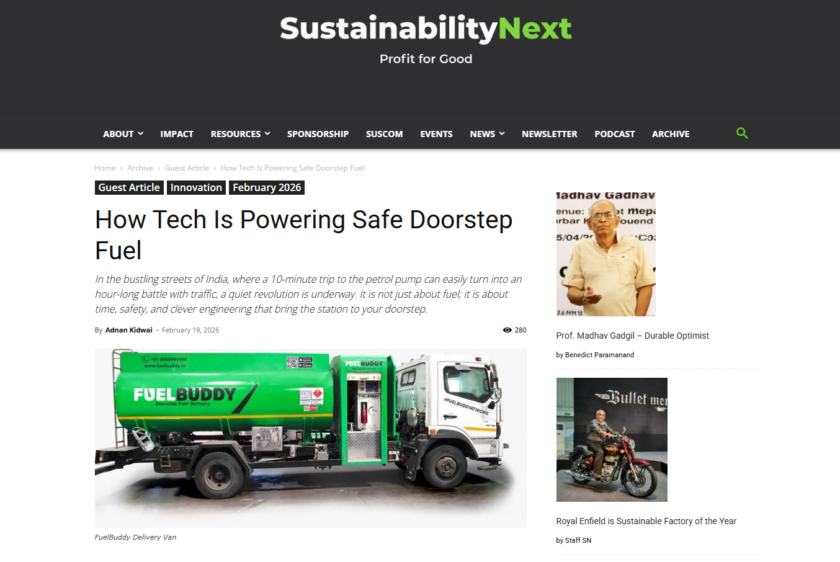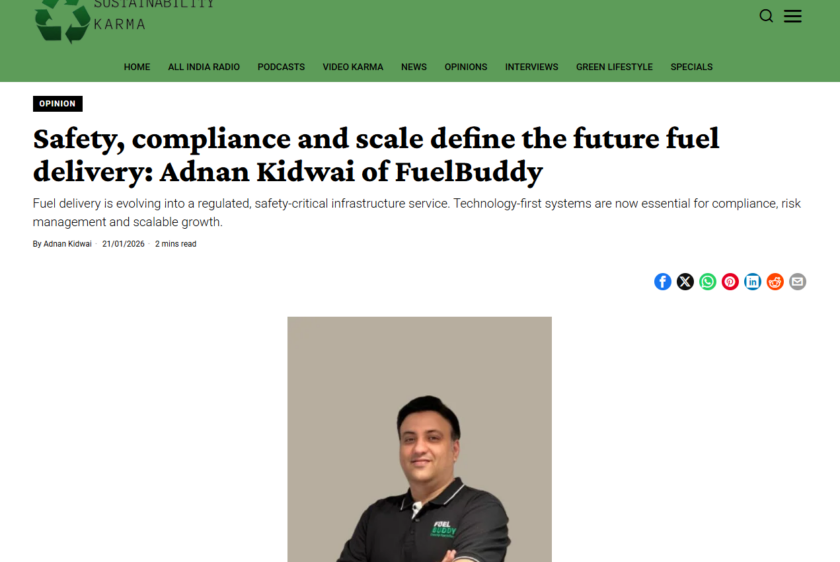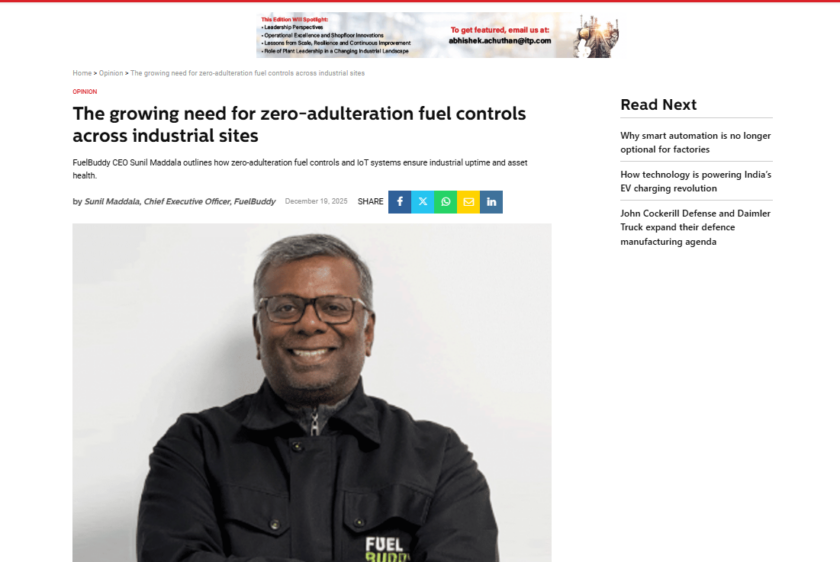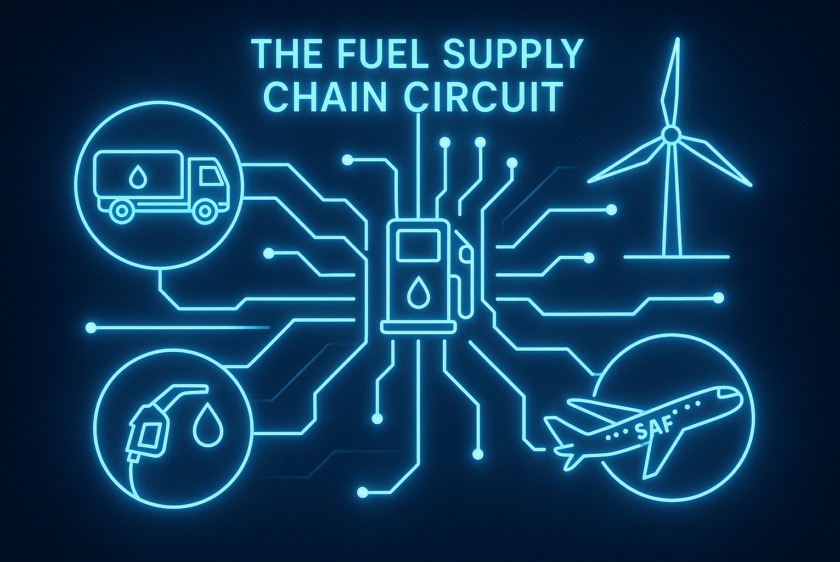SustainabilityNext Features Adnan Kidwai
According to Adnan Kidwai, CEO of FuelBuddy, doorstep fuel delivery is no longer about convenience. It is about control, compliance, and operational discipline. Fuel procurement has traditionally been reactive and manual, with limited visibility and post-delivery reconciliation. As compliance requirements tighten and operations scale, that model is no longer sustainable. For industries where uptime is critical, fuel is not just a purchase; it is...

















